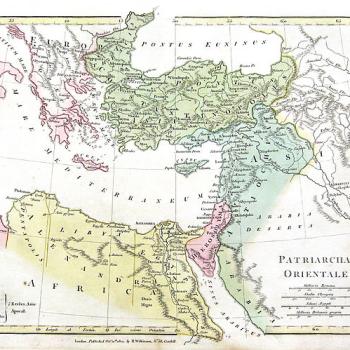There is another option: to imbibe.
I will be the first one in line when the coffee shop starts selling holiday coffee in late August. My house lights will be spotted from multiple satellites, even if I have to take out a small loan to do so. My girls will only have the best toys on Christmas as a statement of my ability to provide. And, we will make ourselves sick on food with the glad confidence that gluttony is only a seasonal sin. I will compare my giving with other people's giving because after all this is the season to give, and if I do (and I do) want to be seasonal, then I must out-give everyone. So, after I have had my fill, and a little more, I will give some money away. It is my American duty. Hedonism-season with a side of moralism. You really can have it all.
But this also seems off-center. I get the credit card statement in January, and start the year behind financially. I do not have time to reflect on all that God has done in the previous year nor to prepare for the next. Plus, and most significantly, I am disadvantaging my daughters by giving them an appetite for consumerism; something that they will have a hard time shaking as they grow. Perhaps the only thing worse than the Christian-as-consumer vision of Christmas, is the Christian as isolated prophet on Christmas: one more sip of that eggnog and you are so very unspiritual.
Thus, the conundrum.
So, I am committed to teach my girls about Christ, and I am in a culture that does not get it; a culture that spends billions of dollars on a season for which He is not the reason. Instead of cursing the darkness, perhaps we can see this not as a dilemma, but an opportunity.
Once a year, the American culture sets aside time to celebrate what is historically a time about the birth of Christ. What a great opportunity for my family. I want to teach my girls to trust Scripture, to come to faith in Christ, and to pour out what has been poured into them. To carry the Gospel to others and to salt and light their surroundings. Now I have a venue in which to do that.
There are at least three things that I want myself, my wife, and my daughters to understand about Christmas. The first is that God keeps His promises. They can therefore trust Him and His word. As Elizabeth said, "nothing is impossible for God" (Luke 1:47). Second I want them to understand that the incarnation demands a response. They must give their existence to Christ; since all things are made by Him, He alone can remake them. "For unto you is born this day a Savior..." (Luke 2:11). Finally I want them to understand that the incarnation demands that every Christian is an evangelist. Like Anna at the temple who, at the dedication of Christ, "continued to speak of Him to all those who were looking for the redemption of Jerusalem." This cradle has more to do with communion than Christmas.
This year we will celebrate in many typical fashions -- lights, tree, presents etc. However, we will also isolate three nights in which we will teach our girls that God keeps his promise, the incarnation demands that we respond to him, and that we must share this with others; a doctrine of scripture, the incarnation, and evangelism respectively. And most of all, we will focus on the death and resurrection of Christ, the heart of the Gospel. So, I have concluded that I must celebrate Christmas. What type of father would I be if I did not take from the culture to teach my girls truth? This is Egypt's gold; or a least Constantine's. We must hijack the culture to teach truth, even if we must steal from our own history.
We're stealing from the season and using it to teach our children theology. What if every day were like Christmas?





